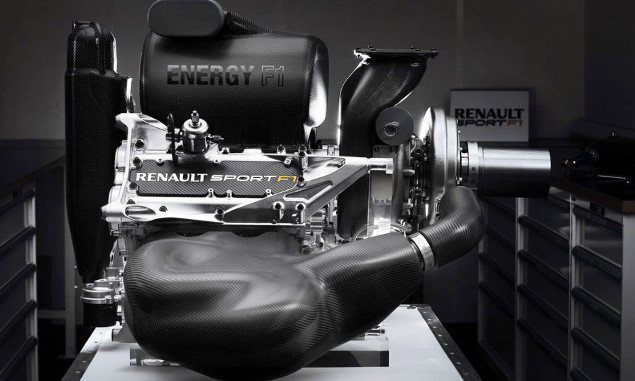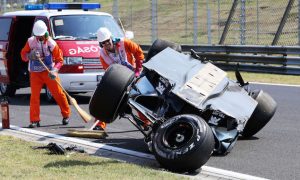
Renault has “made some fundamental changes” to its power unit with very few pieces carried over from 2014, according to chief technical officer Rob White.
Last season saw Mercedes produce a dominant power unit, with Renault hampered by reliability issues in the early part of the season which saw it start on the back foot. After a restructuring at its Viry-Chatillon base, Renault is entering the new season in confident mood and White explains there have been a number of major updates which have been incorporated in to the 2015 power unit.
“We have made some fundamental changes to gain performance and reliability,” White said. “We have upgraded every system and subsystem, with items that will give the most performance prioritised. The principal changes involve the internal combustion engine, turbocharger and battery. The ICE will have a new combustion chamber, exhaust system concept and variable trumpets, as permitted by the 2015 regulations. The compressor is more efficient, while the energy recovery systems are able to deal with more severe usage.
“The 2014 unit was already well placed in its centre of gravity, however we have tidied up the packaging to give greater ease of integration into the chassis. Additionally many systems and functions have been rationalised and simplified to further ease the task. In short, there are very few carry over pieces between the 2014 and 2015 power units.”
And White explained that most of Renault’s work will have been done before the season starts, despite being able to develop the engine throughout the year as part of a token system.
“We have used the majority of the tokens for the first race and our use of tokens during the course of the season will be relatively modest. It then becomes a matter of strategy about when you introduce the remaining tokens; whether to introduce at the start of the season when the technology is relatively immature but could give greater relative performance, or later in the season when the part has had more testing miles but the impact on performance will be potentially less.
“We can still make changes for reliability under the sporting regulations. We have therefore prioritized token spend to make as much headway as possible with performance.”
Keep up to date with all the F1 news via Facebook and Twitter






